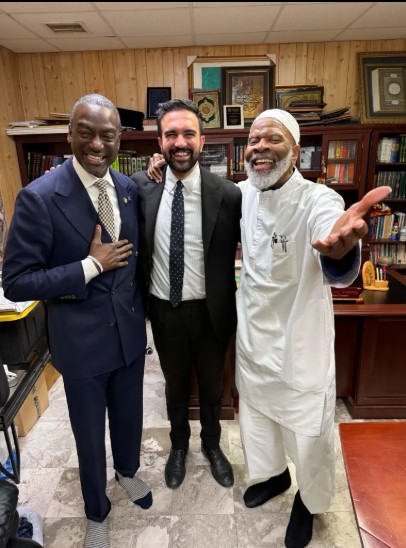When Zohran Mamdani was elected Mayor of New York City, it wasn’t just a political victory — it marked a deeper shift in the city’s public life. For many in the Jewish community, his win felt like the the beginning of a troubling and unfamiliar chapter. It signaled that antisemitic language and ideas, once pushed to the margins, were now making their way into the mainstream.
Mamdani’s public statements, his alliances with figures known for antisemitic views, and his repeated labeling of Israel as a “settler colonial project” have all raised red flags. While criticism of Israel is fair game in any democracy, Mamdani’s approach often crosses the line — turning political criticism into hate speech. Some of the phrases he uses echo harmful antisemitic tropes circulate widely on social media. When such messages come from someone in power, they carry greater weight — and greater danger.
The concern is not theoretical. For many, Mamdani’s rise marks a profound and disturbing shift in the political climate. “While the fact that this communist, Islamist, antisemite has won the election is terrifying, it is just a sign of what’s to come,” said Hillel Fuld, a tech entrepreneur and former New Yorker now living in Israel. “Unfortunately, this is a huge step ‘forward’ and another notch on the belt of us seeing a copy-paste of what we saw in Germany before the war now being implemented in Western civilization. This won’t end well.
We’re already seeing the effects. Antisemitic incidents in New York have risen sharply over the past year. Slurs, graffiti, and online hate have become more visible—in schools, workplaces, and on city streets. Despite government and local initiatives to combat antisemitism, Jewish students on college campuses continue to face harassment — and in some cases, have even been physically trapped during protests. A city that once prided itself on diversity and tolerance now feels less safe for its many Jewish residents.
Much of this begins online. Platforms such as X, Instagram, and TikTok remain full of posts invoking familiar slogans like ‘from the river to the sea,’ while newer and subtler phrases, symbols, and memes are increasingly used to bypass moderation and target Jews or Israel indirectly. These phrases are often presented as calls for justice — but they have long histories that many Jews see as calls for violence. Too often, people share them without understanding the harm they cause. Worse, some share them knowing exactly what they mean.
We’ve been down this road before. In 2018, the gunman who murdered 11 Jews at Pittsburgh’s Tree of Life synagogue started by posting hate on extremist websites. Sadly, what began online ended in tragedy. Today, the path from post to action is even shorter and social media makes it easier for dangerous ideas to spread fast.
Supporters of this rhetoric often invoke free speech. But the First Amendment protects against government censorship — it doesn’t shield anyone from responsibility when speech promotes hate or violence. The polarized climate of today often equates accountability with censorship. This inversion makes it harder to challenge hate — and easier for it to spread.
Under Mamdani’s leadership, the line between online incitement and real-world harm is becoming dangerously thin. When those in power use this rhetoric—or remain silent in its wake—they legitimize it. That’s what makes this moment so critical.
Organizations like Fighting Online Antisemitism work daily to expose and counter digital hate. But it’s not their burden alone. Combating antisemitism requires action on all fronts—through education, legislation, journalism, and consistent public pressure. That includes calling out leaders who normalize or excuse antisemitic discourse.
Because hate rarely begins with violence. It begins with words—with slogans, with symbols, with silence. And when those words go unchallenged—especially from people in power—they become something far more dangerous.

